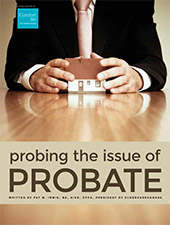Prepare Emotionally
The transition into a retirement home can be just as complicated emotionally as it is organizationally. The elder can feel confused, anxious, even panicked at the prospect of leaving their home. Family members may feel guilt or anger over the task and the attitude of their loved one. High levels of stress only complicate the task of moving into a retirement home, so it is important to remember to keep calm.
Prepare your loved one concerning the tasks they will be involved in, even do a dry run in your head. Go through all possible reactions so you feel ready for whatever may happen. Make sure your elder always feels in control, especially in the packing process, and never overwhelmed or unsafe. This will make the transition easier on everyone.
Also, make sure you have a support system. Have a friend on call to vent your frustrations to, find online groups and communities going through similar processes, and don’t be afraid to ask for help. No one should take on this job alone. Family meetings can be useful in getting the whole family involved in the transition, taking stress off of one or two people. However, it is important that the elder doesn’t feel bullied by the rest of the family.
Watch the Details
Once packed, it might be easy to get carried away with the process of moving into a new retirement home, but last-minute details should not be forgotten.
Make sure the phone line and internet in the house are either disconnected or relocated to your elder’s new residence. Hire a moving company to assist with heavy furniture, and professional cleaners to make sure the house is looking its best, especially if you are planning on selling it. A next step may be to have an inspector go through the house and point out repairs that are needed, and consequently have them taken care of. Always call the day before an appointment to confirm. Make sure you ask around with friends, family, and government organizations verify the quality of the businesses you hire and get the best deal possible. The costs may add up quickly.
But they may be remedied by an estate sale of the possessions not taken with your elder into their new home. You may want to ask the opinion of professional appraisers on some items, or even hire an estate sale manager. Items can also easily be sold online, as long as you are able to ship them properly to the successful bidders.
Take Care of Finances
As you can see, the transition between home and retirement home can become quite expensive, depending on the amount of work to be done on the house. Not only is it important to make sure finances of your elder are taken care of, but also that the move itself doesn’t create too much of a financial burden.
Ask an elder lawyer or geriatric care manager for their input into your loved one’s finances. See if any account closings need to be made, or any loans taken out. An estate sale or renting of the primary home can also help with the costs of moving into a retirement home.




